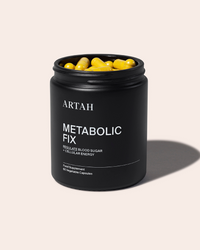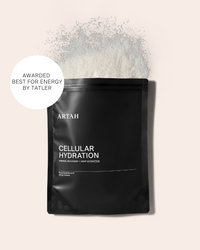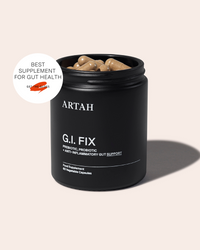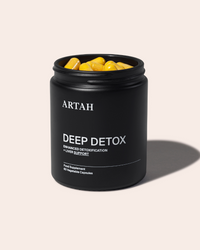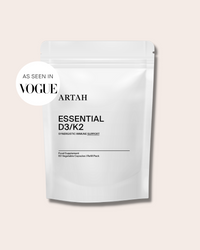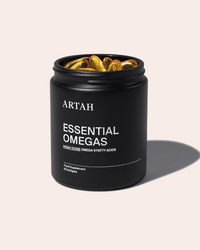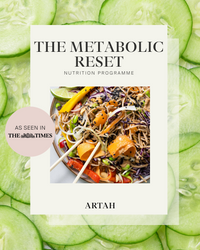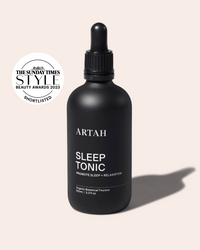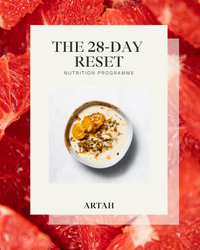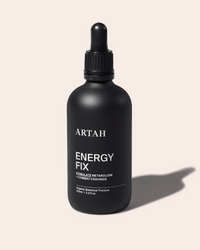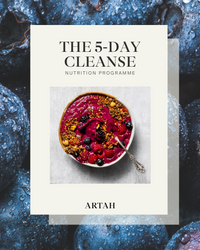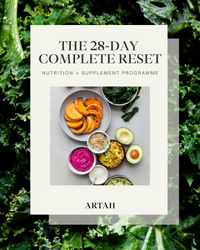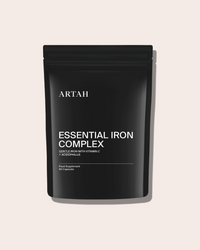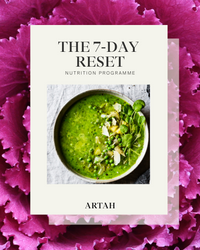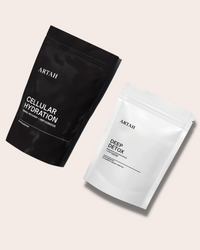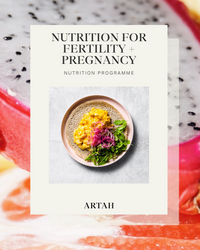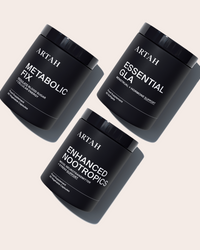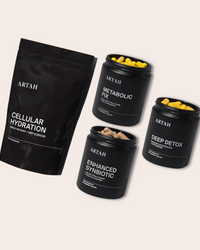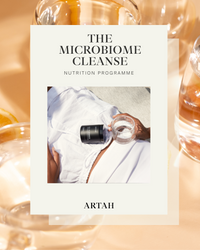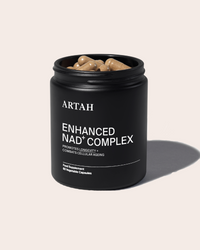3 Signs Your Cortisol Is Out of Balance
Cortisol gets a bad rap, but it’s actually a good thing; it’s a critical regulatory hormone important to our overall health, and we can't live without it. It’s often referred to as our ‘fight or flight’ hormone because one of its primary roles is to respond to stress. Whether it’s acute trauma, chronic emotional or physical stress, injury, or inflammation, it’s cortisol’s job to sweep in and help the body compensate.
Cortisol does great things when it’s in balance; it activates the sympathetic nervous system and creates a hormonal cascade that ensures we can handle what’s coming our way; this includes things like changes in blood pressure, blood sugar, energy production, cognitive function and blood flow. The problem arises when we’re exposed to the fight or flight state for a prolonged period of time. Our bodies are meant to be in flux between our sympathetic and parasympathetic nervous systems; simply put, periods of fight or flight should be transient, allowing our body to return to a more restful state (often called the ‘rest and digest’ state). Excessive stress can lead to both chronically high and chronically low levels of cortisol, making us unable to respond properly when we need to. Officially, this is referred to as HPA Axis dysfunction, often referred to as adrenal fatigue, and it can affect everything from blood sugar and mood to fertility and sleep. Here are some signs you’re out of balance.
You’re tired but wired.
A classic sign of high cortisol is feeling tired but wired; so even though you’re tired (or even exhausted) in the day, by the time it gets to the evening, you’re mentally wired and as such, will likely have difficulty falling asleep. Our cortisol naturally peaks a few hours after waking, between around 8am-10am, and should gradually decline throughout the day. By evening, cortisol should be roughly half of what they are at their peak, with levels gradually declining until around 4am(1). If our cortisol spikes later in the day – whether it’s from stress, coffee, excess sugar, or all the above – it can remain high when it’s supposed to be declining, preventing us from getting into a restful state and therefore, sleep. This can lead to a self-perpetuating cycle of poor sleep and compensatory rises in caffeine intake, stress, and cortisol the following day.
What to do:
In the day: managing your daytime stress will help you have a smoother transition into a restful state in the evening. Try things like reducing (or avoiding) caffeine after lunch, walking more in the day to interrupt stress patterns, and avoiding sugary foods, which also spike cortisol.
In the evening: if you haven’t nailed your daytime stress routine, there’s still lots you can do at night. Proven stress relieving practices include Yin Yoga (even just 15 minutes), breath work, and meditation.
What to take:
Enhanced Nootropics: Ashwagandha is an adaptogenic herb clinically proven to improve stress-related anxiety and HPA regulation (2,3). It also contains activated B Vitamins involved in the stress response, mood, and energy production, and calming magnesium glycinate, which is a key regulator of cortisol (4). You can also try Sleep Tonic an hour before bed to help ease tension and encourage sleep.
Your blood sugar is erratic.
Excess stress can wreak havoc with our blood sugar. Initially, a spike in cortisol will mobilise glucose from your stores so it’s ready to help you run away from a threat, but here’s the thing, most of our chronic stress these days is psychological, so without a means to use the newly available sugar your body has made available for energy, we pump out more insulin to store it away. This is one of the many ways that chronic stress can lead to elevated insulin and metabolic dysfunction. You don’t need a continuous glucose monitor to be clued into the signs of erratic blood sugar; irritability, big fluctuations in energy and hunger, constant cravings, headaches, fatigue (especially after meals), lack of concentration, brain fog, erratic mood, resistance to weight loss and an increase in visceral (belly) fat are some of the most common.
Weight gain around the midsection is a classic sign of stress related changes in body fat; studies have shown that individuals who are chronically stressed have significantly higher waist circumferences, sweet cravings, and leptin levels compared to those who aren’t stressed (5).
What to do:
Skip the sweet breakfasts and start your day with a good serving of protein, fibre, fat and nutrients. If you’ve become more reliant on starchy and high sugar foods from the cravings, it’s important to try to get back into balance with blood sugar friendly whole foods, try The Metabolic Reset, which has an easy to follow, 5 day modified keto sprint to help bring your metabolism back into balance.
What to take:
Metabolic Fix: Our cult-favourite contains Berberine, Inositol, Carnitine, Green Tea extract and other blood sugar heroes to help you restore metabolic control and banish cravings – quickly.
You aren’t ovulating.
Cortisol is very influential when it comes to the menstrual cycle. When we’re chronically stressed, cortisol can start to inhibit the section of gonadotropin releasing hormone (GnRH), a key regulator of ovulation. This, in turn, impacts the signalling of the hypothalamus, impacting FSH and LH, which we need for follicle development and ovarian stimulation. In theory, this is a protective response – our bodies don’t want to reproduce in times of danger – which is why stress management techniques are so supportive for optimal fertility. Feeling stressed? Try not to worry, one stressful day (or week) at work isn’t going to halt ovulation in its tracks, it’s when stress becomes more chronic that you may start to feel the effects on your cycle. This may start with a worsening of PMS (especially mood related symptoms in the late luteal phase) or irregular cycle, or may manifest as a lack of ovulation.
What to do:
Fertility is complex; if you suspect you aren’t ovulating, it’s important to seek advice from your doctor. In the interim, implement some tools to help you manage stress, like those mentioned above. Nutrition is key; so try to adopt a nutrition regime that includes the key nutrients that support fertility. If you need support, try our Nutrition for Fertility and Pregnancy Guide. Acupuncture can also be a great way to help relieve stress, particularly for individuals who are TTC.
What to take:
Enhanced Fertility: our advanced pre-natal and pregnancy support delivers all the key nutrients for fertility and a healthy stress response.
Essential Omegas: omega-3 fatty acids are a crucial supplement for fertility, pregnancy, and lactation, but they can also help the body respond to stress. Studies have shown that daily supplementation in healthy individuals resulted in lower cortisol levels after 6 weeks (6). In addition to supplementation, aim to increase your consumption of omega rich foods, including oily fish and organic, grass-fed beef (which have higher levels of Omega-3s compared to commercially raised beef). You can also increase plant-based precursor foods, including walnuts, flaxseeds, chia seeds and soybeans.
This article is for educational purposes only and the implementation of the theories and practices discussed is at the sole discretion of the individual. All information given is not a substitute for medical advice, diagnosis, or treatment. If you have any concerns about your health, you should speak with your physician.
References:
- Mohd Azmi NAS, Juliana N, Azmani S, Mohd Effendy N, Abu IF, Mohd Fahmi Teng NI, Das S. Cortisol on Circadian Rhythm and Its Effect on Cardiovascular System. Int J Environ Res Public Health. 2021 Jan 14;18(2):676.
- Andrade C, Aswath A, Chaturvedi SK, Srinivasa M, Raguram R. A double-blind, placebo-controlled evaluation of the anxiolytic efficacy ff an ethanolic extract of withania somnifera. Indian J Psychiatry. 2000 Jul;42(3):295-301.
- Chandrasekhar K, Kapoor J, Anishetty S. A prospective, randomized double-blind, placebo-controlled study of safety and efficacy of a high-concentration full-spectrum extract of ashwagandha root in reducing stress and anxiety in adults. Indian J Psychol Med. 2012 Jul;34(3):255-62.
- Murck H. Magnesium and affective disorders. Nutr Neurosci. 2002 Dec;5(6):375-89.
- Macedo DM, Diez-Garcia RW. Sweet craving and ghrelin and leptin levels in women during stress. Appetite. 2014 Sep;80:264-70.
- Noreen, E.E., Sass, M.J., Crowe, M.L. et al. Effects of supplemental fish oil on resting metabolic rate, body composition, and salivary cortisol in healthy adults. J Int Soc Sports Nutr 7, 31 (2010).





